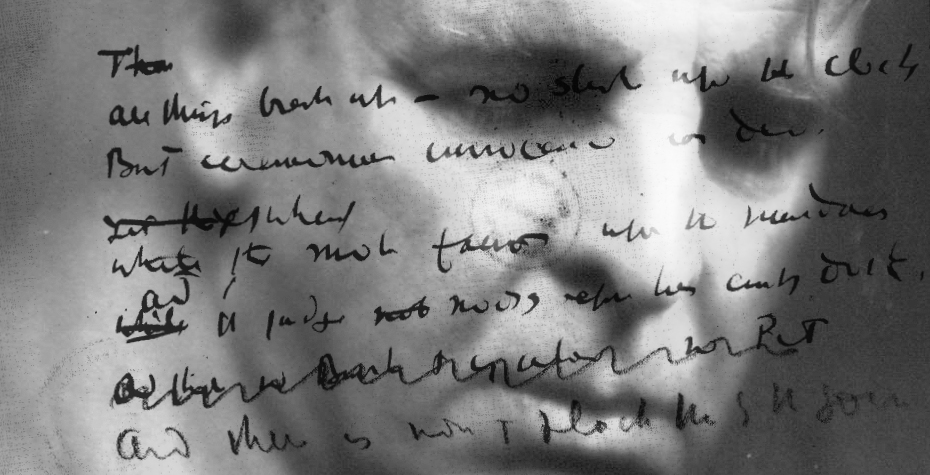Student Traces Poetic Evolution in the Manuscripts of Irish Poet W.B. Yeats

When she was 15, Kelly Anne McCullagh ’14 discovered something unexpected while sorting through the belongings of her late grandfather. “I found a letter written by my grandfather to my grandmother in which he artfully closed his correspondence with Yeats’s poem, When You Are Old. My grandfather, Jack McCullagh, a stoic, Irish-American police officer suddenly transformed into a tender and brooding master of romance,” McCullagh says. It was the first time she had encountered the poetry of William Butler Yeats, and what she remembers most is “the wistful feeling his poetry gave me… I was certain that it was one of the most beautiful things that I had ever heard once I read it aloud.”
When she arrived at Wellesley a few years later, McCullagh began studying Yeats and was captivated by what she read. In her senior year, she turned her appreciation of the poet into the basis of her honors thesis in English, titled “The Rag and Bone Shop of the Heart: Tracking the Development of William Butler Yeats’s Poetry through Manuscript Materials,” with her advisor, Associate Professor of English Kathleen Brogan. In her thesis, McCullagh analyzes Yeats’ editing process and poetic writing over the course of an evolving career, from the poet’s early post-Romanticism, observation of Irish politics, and later self-reflection and Modernist inflections.
McCullagh used the manuscript materials made available by the Cornell University Yeats Project. “We can see the words and phrases he crossed out, the additions to his poetry he made, and even comments that he scribbled in the margins.” As her own work evolved, “I found interesting patterns in the thematic and technical changes across Yeats’s work,” she said. She was particularly intrigued by the question of youth and time, given Yeats’s later preoccupation with aging and mortality, and musings on love, regret, and identity after a long life; the changes Yeats made in revisions of his work reflected fascinating patterns within his poetic process.
This kind of intensive manuscript study of a writer’s work is quickly becoming a rare opportunity, McCullagh says, in a world where manuscripts—whether poetic or personal, in the case of her grandparents’ correspondence—are quickly becoming a thing of the past. “Today’s writers often work on a computer and what is added, omitted, and commented on quickly disappears from draft to draft. A study like this one may not be possible with some of our contemporary and future writers.”
And yet, through examining multiple drafts of Yeats’ work, McCullagh has realized that “to truly know Yeats as a poet, we must understand the time in which he wrote, we must see for ourselves the toil of his writing process… only then can we begin to understand that [he] developed his own version of Modernism by reacting to his changing world, carefully crafting his poetry, and entirely reinventing when the conventional did not suffice.”
When you are old and grey and full of sleep,
And nodding by the fire, take down this book,
And slowly read, and dream of the soft look
Your eyes had once, and of their shadows deep;
How many loved your moments of glad grace,
And loved your beauty with love false or true,
But one man loved the pilgrim soul in you,
And loved the sorrows of your changing face;
And bending down beside the glowing bars,
Murmur, a little sadly, how Love fled
And paced upon the mountains overhead
And hid his face amid a crowd of stars.
—W.B. Yeats, When You Are Old
Taking a cue from the Huffington Post’s College Thesis project, The Daily Shot will continue its own series to feature theses and other projects by Wellesley seniors, exemplifying (just a portion of) the range, creativity, and scholarship of the class of 2014.
